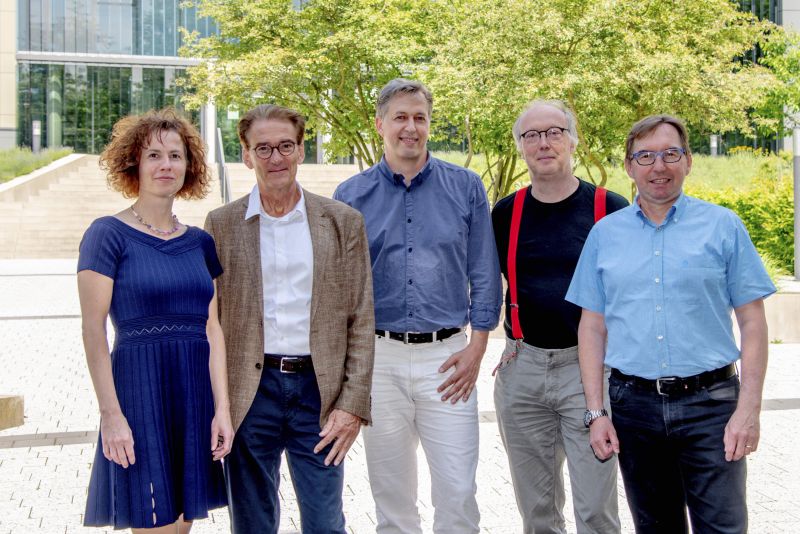Recognizing pathological movement patterns – with the help of artificial intelligence
Göttingen research project "Deep Movement Diagnostics" receives around 1.2 million euros for the development of three-dimensional reconstructions of movement patterns

Detailed video-based recording of the movement of all finger joints of a hand when gripping an object using artificial intelligence. © Swathi Sheshadri
/DPZ/ Reliably evaluating walking and gripping movements of patients is essential for the diagnosis and therapy of movement disorders, for example after a stroke or in Parkinson’s syndromes. However, the success of this challenging diagnostic procedure depends to a large extent on the experience and skills of the attending physician. This is where the “Deep Movement Diagnostics” project, coordinated by Alexander Gail, scientist at the German Primate Center – Leibniz Institute for Primate Research, comes in. The team, which also includes Mathias Bähr and Melanie Wilke, both University Medical Center Göttingen, Florentin Wörgötter, University of Göttingen, and Hansjörg Scherberger, German Primate Center, wants to use findings from machine learning and robotics to improve the objective assessment of movement patterns. The research team will receive about 1.2 million euros over a period of three years from the “Big Data in the Life Sciences of the Future” funding line, which was put out to tender by the “Niedersächsisches Vorab” initiative of the Volkswagen Foundation.
“Movement disorders such as trembling, paralysis or muscle tension disorders affect many patients suffering from strokes or neurodegenerative diseases such as Parkinson’s or multiple sclerosis. The precise and reproducible recording of mobility restrictions represents a major challenge in diagnostics and therapy control, as this requires experienced doctors who are not always available,” explains Mathias Bähr, Director of the Neurological Clinic at Göttingen University Hospital.

Das Forscherteam des Projekts „Deep Movement Diagnostics” (von links): Prof. Melanie Wilke und Prof. Mathias Bähr, beide Universitätsmedizin Göttingen, Prof. Alexander Gail, Deutsches Primatenzentrum, Prof. Florentin Wörgötter, Universität Göttingen, und Prof. Hansjörg Scherberger, Deutsches Primatenzentrum. Foto: Karin Tilch
This is where the “Deep Movement Diagnostics” project comes in. The campus-spanning research team around Alexander Gail wants to use most modern developments in machine learning and robotics, to capture movement patterns objectively, standardized and user friendly. “We will bundle our expertise in body and eye movement research in humans and monkeys, neurophysiology and clinical neurology as well as prosthetics and robotics,” says Alexander Gail.
Using state-of-the-art digital methods, walking and gripping movements will be measured and modeled with previously unattainable precision to provide diagnostic tools for individualized therapeutic approaches, for example for Parkinson’s or stroke patients. The studies on motor skills in monkeys play an important role in this, they are the basis for later applications to humans. “Our goal is to develop an inexpensive, easy-to-use system for a widespread use in diagnosis and monitoring of therapies of movement disorders,” says project leader Alexander Gail.
“Ease of use and low effort for carrying out the examinations are important factors in increasing patient acceptance,” says Melanie Wilke, Director of the Institute of Cognitive Neurology. “We expect the new video-based methods to allow a qualitative leap forward compared to current clinical investigation techniques.
In addition to diagnostics, the research team wants to investigate complex movement sequences in healthy volunteers and monkeys in order to better understand the neurophysiological basics of movement disorders.




